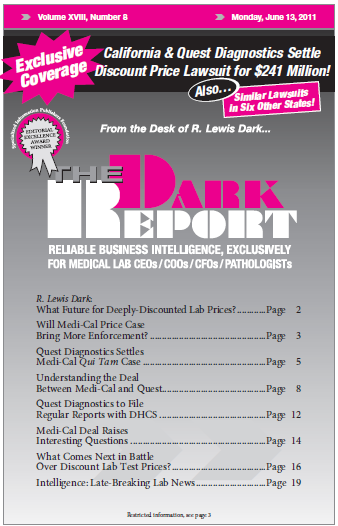CEO SUMMARY: It was on May 19 that the California Attorney General and Quest Diagnostics Incorporated signed an agreement to settle allegations that Quest Diagnostics overcharged Medi-Cal, the state’s Medicaid program. It is expected that the California Attorney General will now move to resolve the whistleblower case against the remaining lab company defendants. Meanwhile, similar …
Will Medi-Cal Price Case Bring More Enforcement? Read More »
To access this post, you must purchase The Dark Report.


